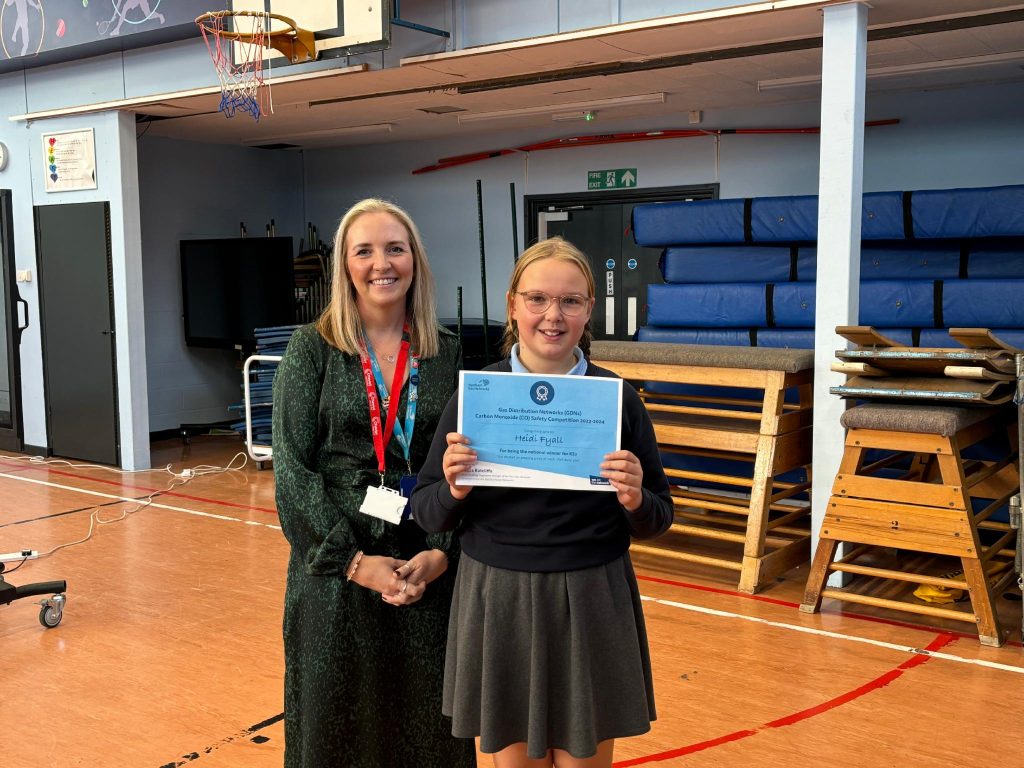Congratulations to our Summer 2024 winners!

Picture: Laura Ratcliffe with Key Stage 2 national competition winner, Heidi F
In Summer 2024 Heidi F, aged 9, from Ovingham Middle School won the regional finals and Key Stage 2 national competition with her impactful video showcasing the signs of CO poisioning.
Heidi won £450 for herself and £900 for her school.
David B, age 8, from Redby Academy in Sunderland won the Key Stage 1 regional final with a very well thought through coding video highlighting all the signs of CO poisoning, taking home £150 for himself and £300 for his school.
Laura Ratcliffe, Social Strategy Programme Manager at Northern Gas Networks said: “We were incredibly impressed by the creativity and passion displayed by all participants.
“We believe it is essential to engage the younger generation about the dangers posed by carbon monoxide, the causes and how to keep themselves safe.”
What is Carbon Monoxide (CO)?
Known as the silent killer, accidental – and therefore preventable – CO poisoning is responsible for around 40 deaths and 200 visits to hospital each year.
You can’t see it. You can’t smell it. You can’t taste it. CO is a colourless, odourless, tasteless poisonous gas that is released when any fossil fuel that burns – not just gas – doesn’t burn properly.
In the UK, there are more than 4,000 visits to Accident and & Emergency for treatment of CO poisoning – which can often lead to lasting neurological damage.
Symptoms of CO poisoning are often confused with flu, especially in winter, as they include severe headaches, a sore throat, dizziness, coughing, feeling sick, and a general lack of energy
Did you know?
- 22 million homes in the UK have gas appliances, with likely 14 million gas boilers and around 40,000 faulty appliances releasing CO
- 5% – 10% of households have a CO alarm, with this figure dropping to 2% in areas of multiple deprivation
What to do if you suspect carbon monoxide poisoning
- Get everyone outside into fresh air immediately
- Call the National Gas Emergency Service on 0800 111 999
- And if there is a medical emergency, don’t delay, ‘phone 999
- More information on carbon monoxide poisoning can be found here



